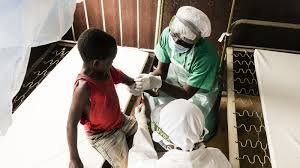Nigeria’s battle against Mpox continues in 2024, with recent data from the Nigeria Centre for Disease Control and Prevention (NCDC) revealing significant trends in the disease’s spread and demographics.
The latest situation report, released Monday on the NCDC website, paints a picture of the outbreak’s current status.
The Explainer gathered that since January 2024, Nigeria has reported 1,031 suspected Mpox cases across 47 local government areas in 23 states and the Federal Capital Territory (FCT).
Of these cases, 67 have been confirmed. Notably, 67 percent of the reported cases were in males, maintaining a pattern observed since the outbreak began in September 2017.
The age distribution of cases has raised concerns among health experts. Children under five years old are the most affected group, followed by individuals aged 26-30 and 46-50. This marks a shift from previous years, prompting calls for targeted prevention strategies.
Mohammed Alhaji, Country Director for Busara Centre for Behavioral Economics, expressed his concern in a LinkedIn post: “I have been monitoring the historical pattern of mpox cases in Nigeria, with a specific focus on age distribution. Although it may be too early to draw conclusions, it appears that the current outbreak is the first where children are the most affected.”
Echoing this sentiment, Olayinka Badmus, Resident Advisor of the Media EIS fellowship and Public Health Physician, commented: “Indeed, we should be worried about children. Not only are they the most affected, most of the cases co-exist with chicken pox. Unfortunately, I don’t see how the education and health sectors are working together to focus on this key population.”
Despite the concerning trends, there is a silver lining. Nigeria has recorded no fatalities from Mpox in 2024, a significant improvement from 2022 and 2023, which saw two and seven deaths respectively.
The global health community has taken notice of the Mpox situation. The World Health Organization (WHO) recently declared it a global public health emergency and approved the MVA-BN vaccine as the first prequalified vaccine against Mpox. In response, Nigeria received a donation of 10,000 doses of Jynneos, a Mpox vaccine, from the United States government.
Mpox, caused by the monkeypox virus, manifests as a painful rash, enlarged lymph nodes, and fever. While most individuals fully recover, severe cases can occur.
The disease spreads through close contact with infected animals or humans, respiratory droplets, and contaminated objects.
While Nigeria grapples with its Mpox cases, the African continent faces broader challenges. The Democratic Republic of Congo remains the epicenter of the outbreak in Africa, with Mpox reported in at least 14 African countries.
On September 5th, the Africa CDC announced the arrival of 99,100 doses of the Jynneos vaccine in the Democratic Republic of Congo.


























